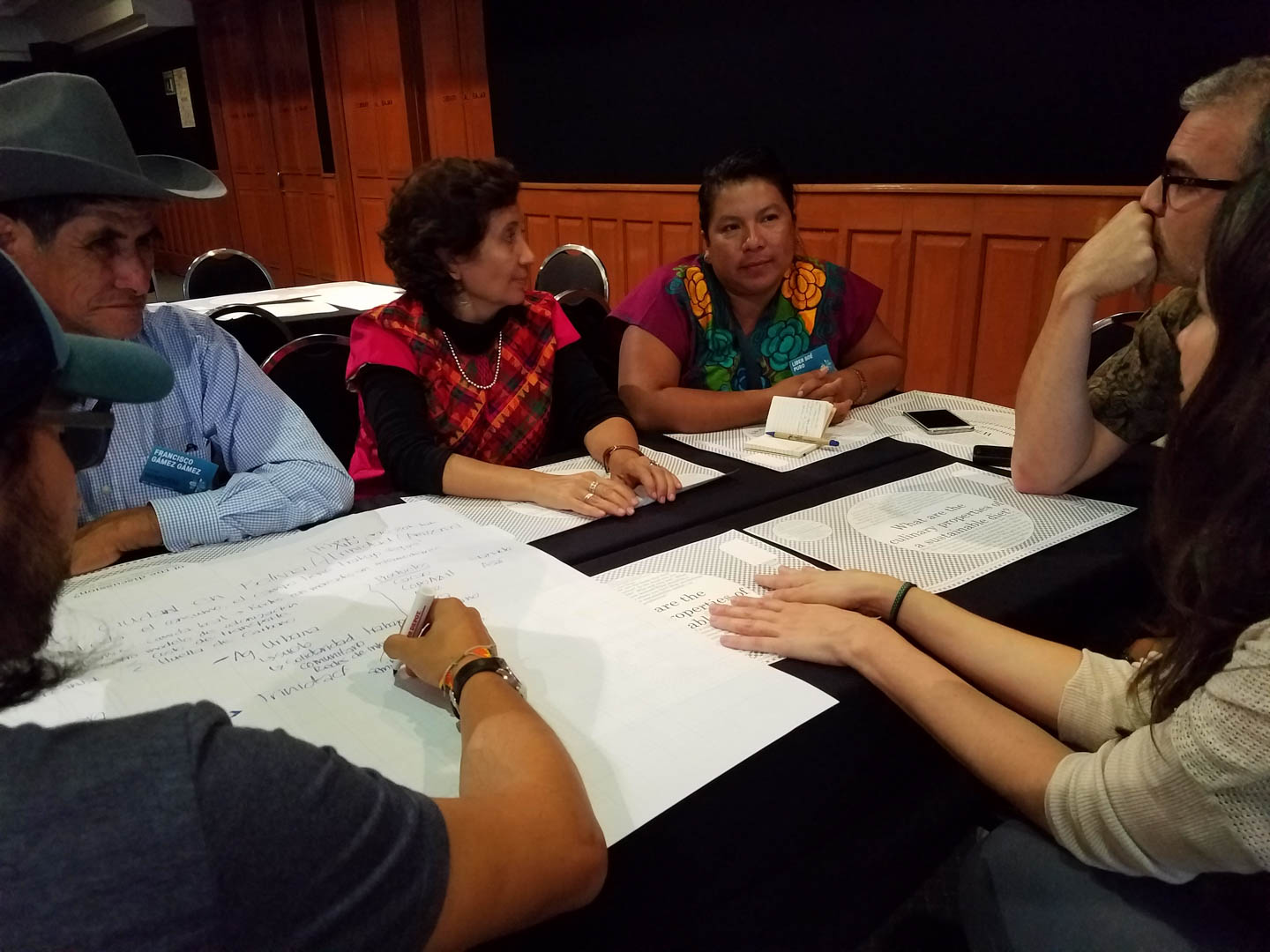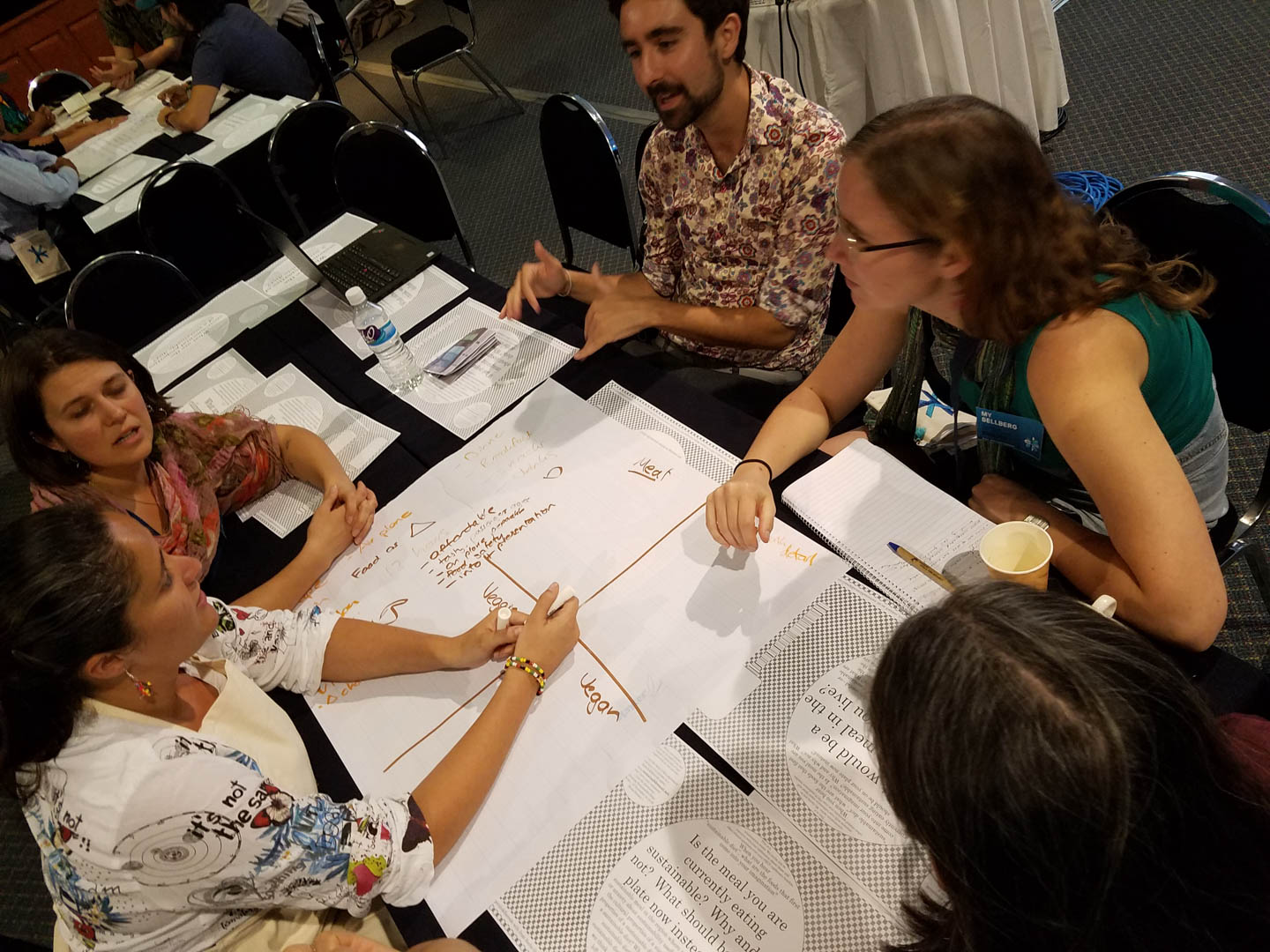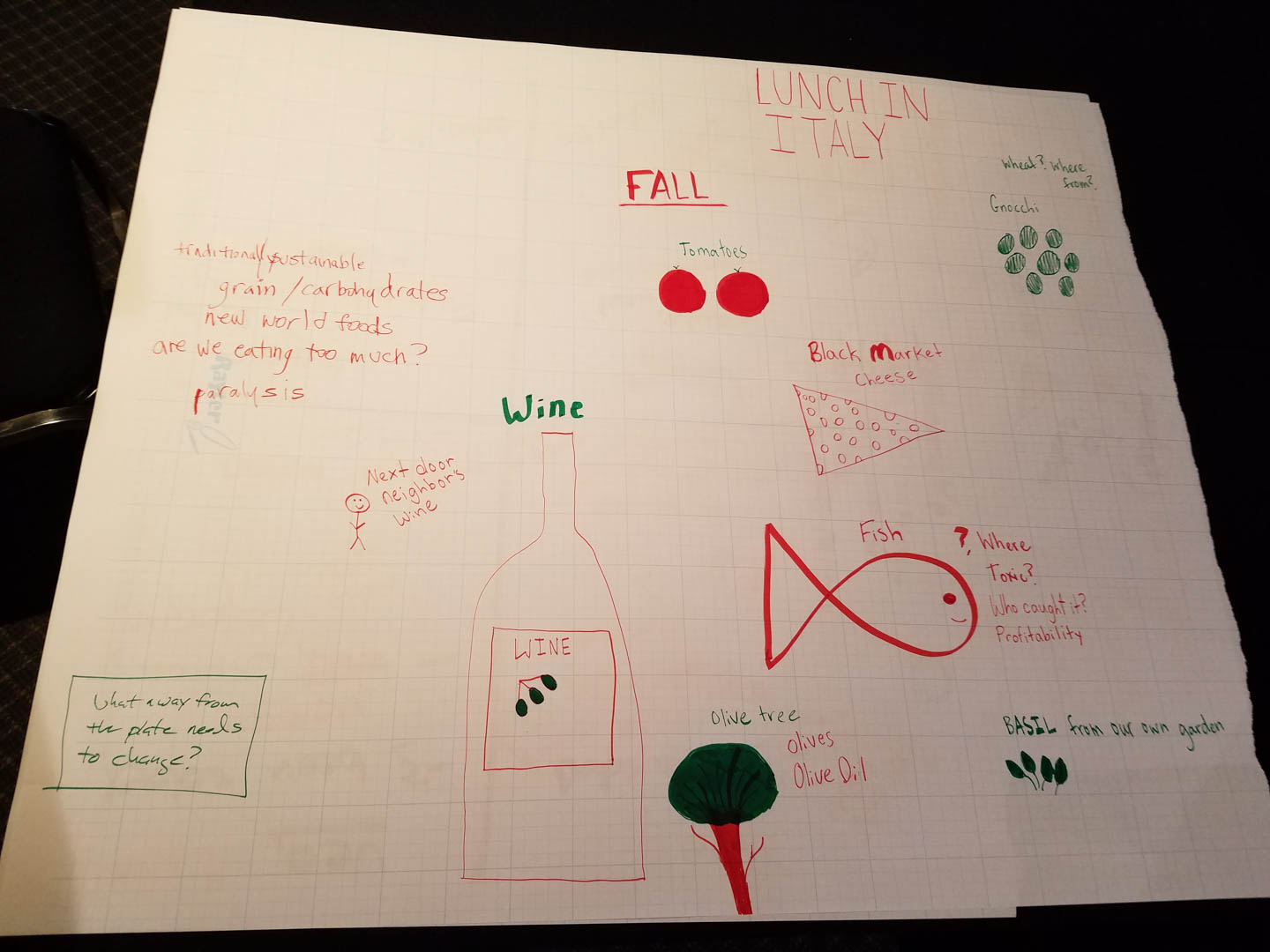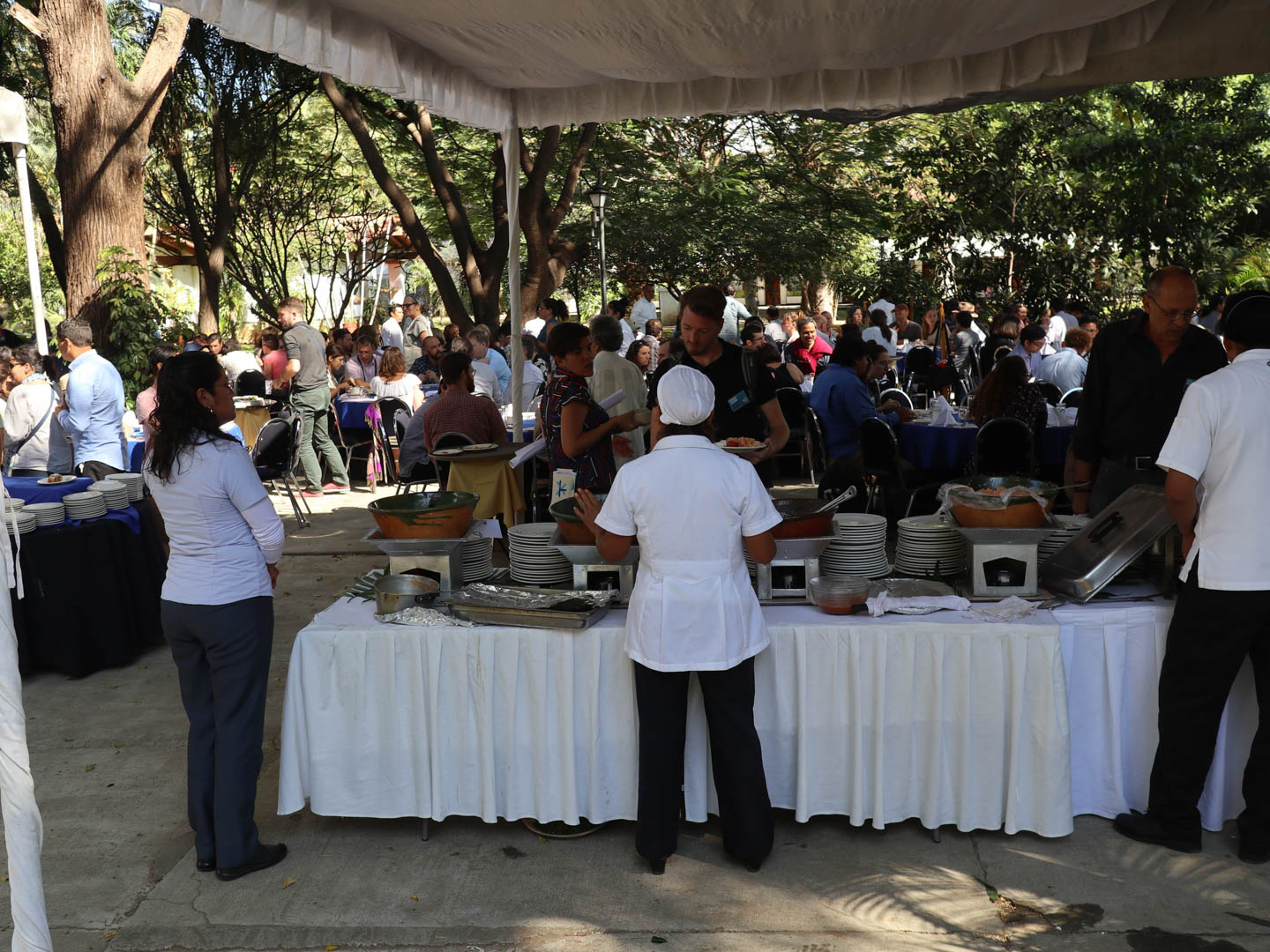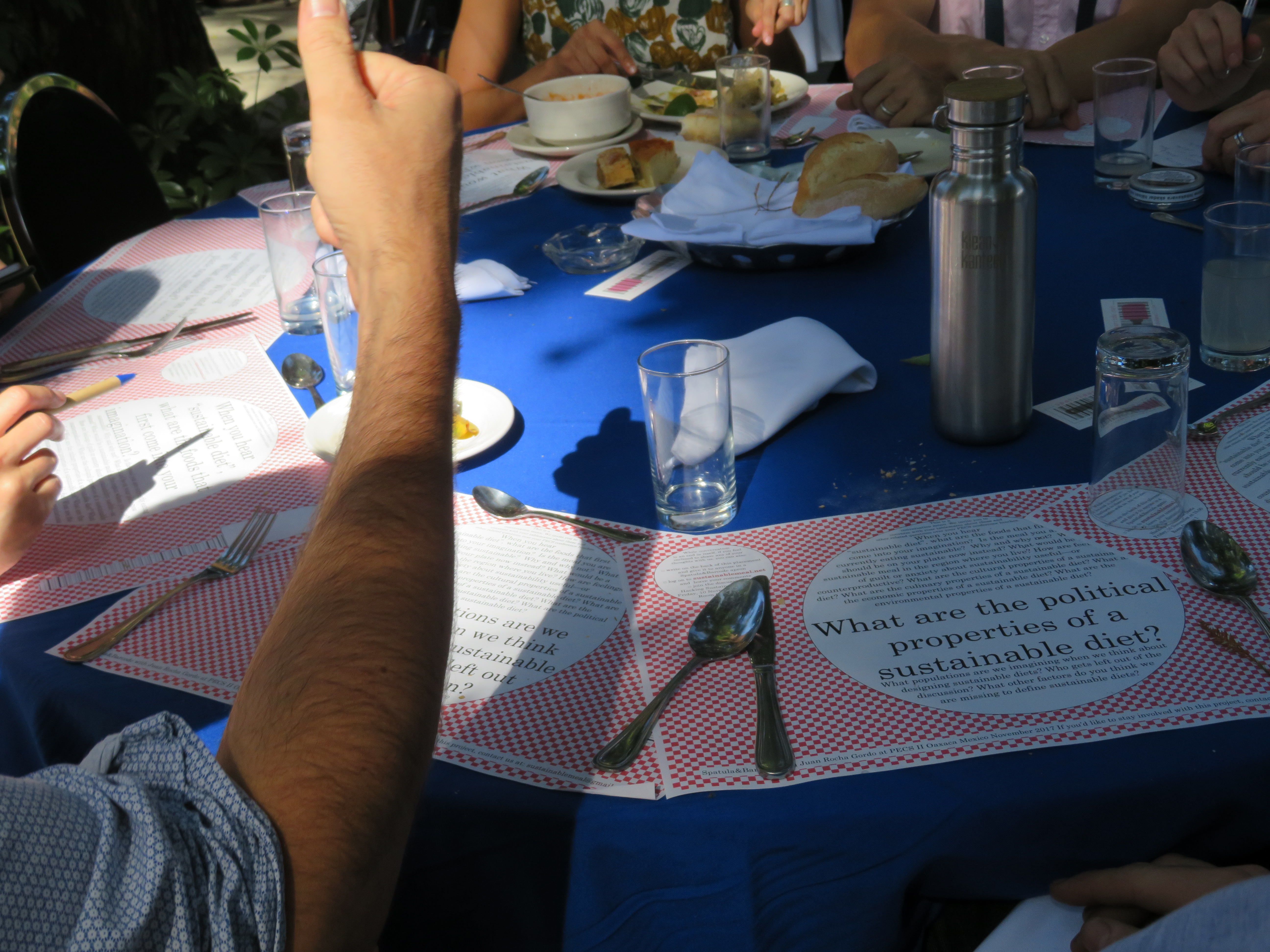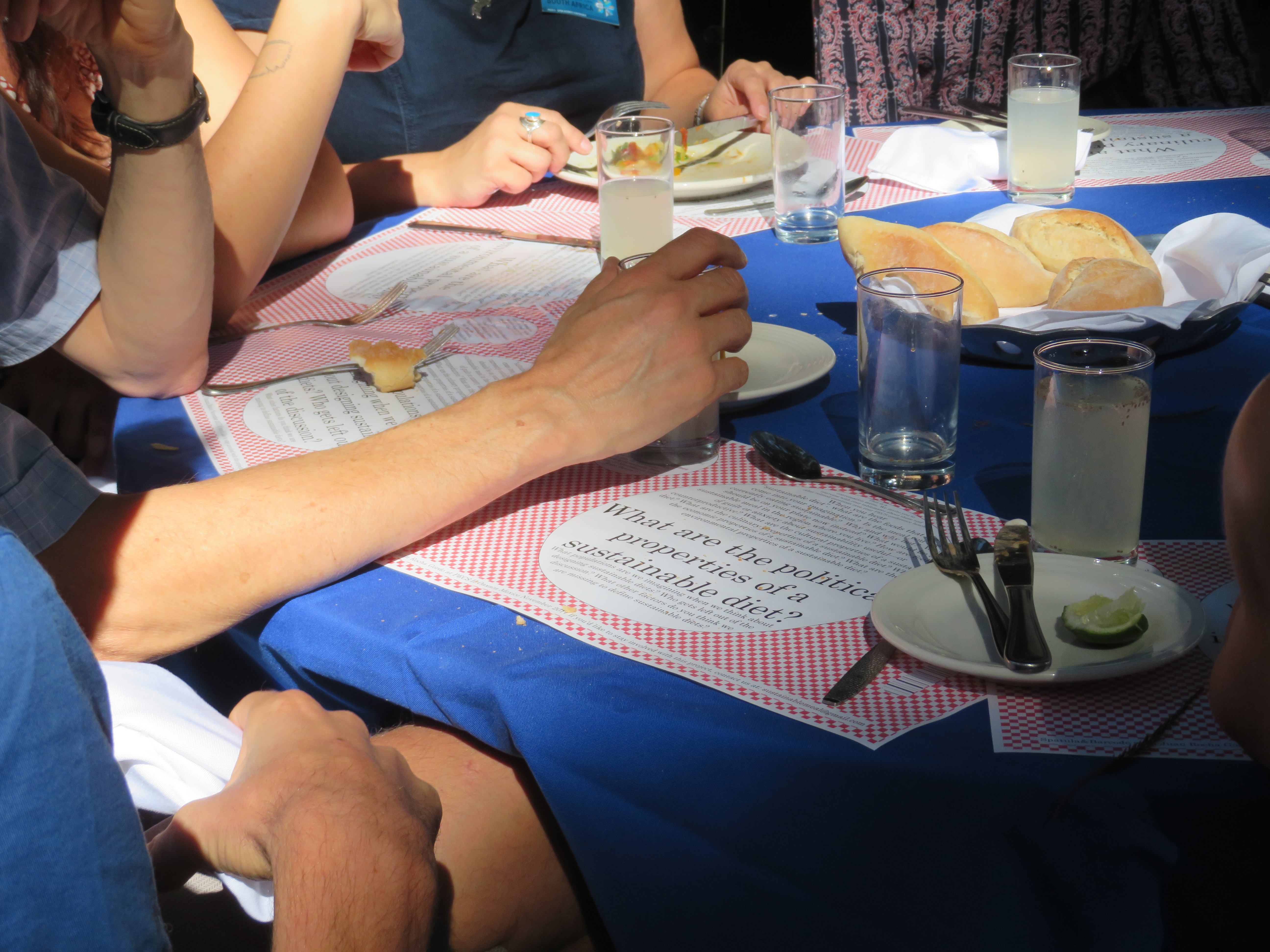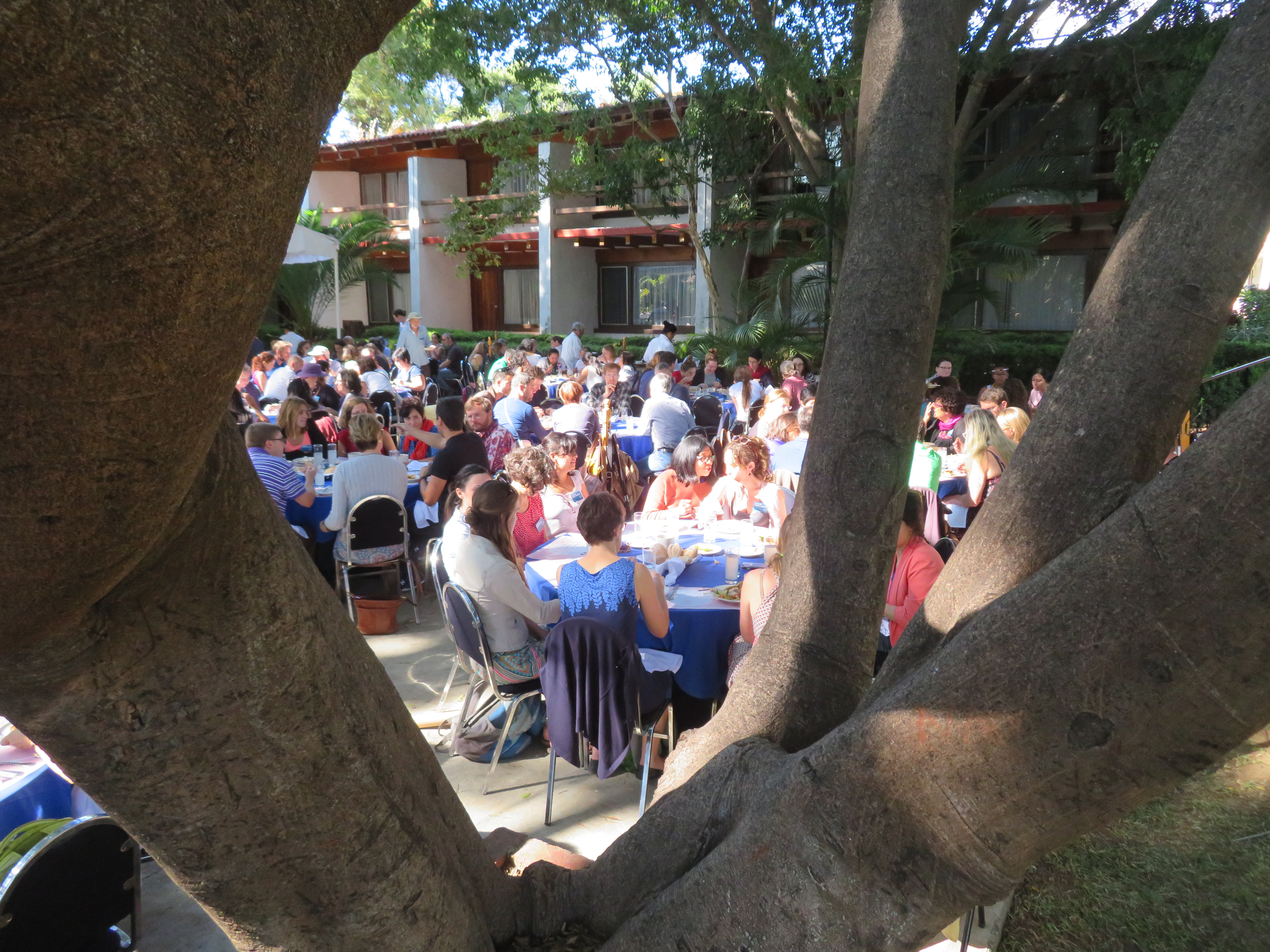Hacking sustainable diets
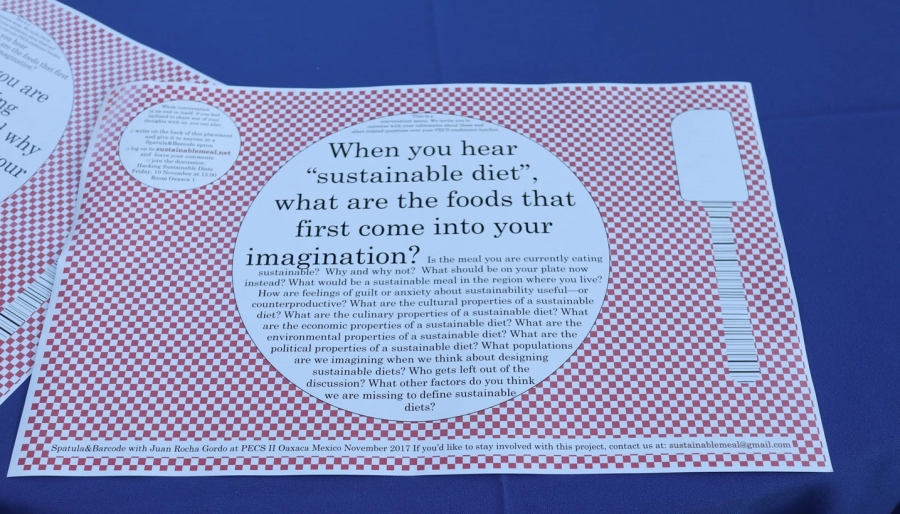
By Juan Rocha
What is a sustainable diet? It’s not a trivial question, yet it has an elusive answer. Part of the problem is that the very framing of the question is a wicked problem: it has so many angles to it that people who think of solutions often miss part of the picture. For example, some scientists believe that food production needs to be doubled by 2050 to meet the caloric demand of a growing human population. However, those same scientists may fail to take into consideration issues of food distribution, current issues on food waste—about 1/3 of the food produced globally is wasted—or issues of nutrition—are we getting the right nutrients? Maybe you know a friend or a relative who is concerned with sustainable foods and has changed to vegetarian diets, local or prefer organic products. Those are good intentions, but they are hardly scalable solutions. As Nobel Prize winner Elinor Ostrom used to say, for sustainable problems there are not panacea solutions—what works in one place does not necessarily work in another place. Dietary scientists are reaching the same conclusions when it comes to healthy diets—what works for you might not be necessarily the same diet that works for me.
Better understanding the problem is already part of the solution. That’s why a group of researchers and artists from the University of Wisconsin and the Stockholm Resilience Centre organised a “sustainable meal” dialogue last November in Oaxaca, Mexico. The Program for Ecosystem Change and Society (PECS) gathers scientists and practitioners from around the world in their biannual meeting to discuss local approaches for solving sustainability challenges. This year the meeting was held in Oaxaca, a colorful city proud of their traditions, cultural and biological diversity, and home of some of the best moles I have ever tasted. (Mole is a curry-like sauce that flavors tacos, tortillas and other regional dishes.) During one of the lunches at the conference, the tables were decorated with place mats that spiced lunch conversations with questions such as: “when you hear ‘sustainable diet’, what are the foods that first come into your imagination?” or “what are the political properties of a sustainable diet?”
The purpose of the activity was twofold. First, by sharing answers, we reveal our priorities: when it comes to sustainable diets, we may care more about animal rights, or nutrient contents of our food. Second, by hearing other people’s answers, we learn about our priorities, our perspectives, and the diversity of dilemmas and potential solutions. Some of the answers participants shared highlight the use of traditional and seasonal ingredients, vegetable-based diets (including vegan and vegetarian variations), some meat, maybe some insects, certified fishes or free-range chickens. When it comes to values, people emphasized fair-trade, organic, ethical and equitable, low carbon footprint, avoiding heavily processed foods, additives or refined sugars.
“The sustainable diet does not exist, it depends on each person: their genetics, microbiome, and culture. It all boils down to how politically correct do you want to be and how long do you want the food webs you depend upon. What is politically correct is socially constructed and a philosophical issue.” – Anonymous participant.
Culture matters! What is considered sustainable varies from place to place. For example, a participant from Sweden said “a sustainable meal would be locally produced vegetables–carrots, potatoes, beetroots. Stuff that has been grown for a long time in the region. Organic meat perhaps”, while an American citizen prefers “bitter–in a good way. Like most people here (I expect) I view meat (particularly beef) as one of the most unsustainable (also palm oil and soy of course) elements of diet (land area for feedstock, water consumption). I look forward to a future with insect-based hamburgers (preferably cockroaches, but grasshoppers will also do).” No matter what, a sustainable meal will contain a hamburger! A participant from the Netherlands reminded us that it’s not only about ingredients but also the production process: “It is not just a question of flying strawberries from Africa to Europe in December. Did you know lettuces grown in Holland are flown to Morocco to be chopped and bagged and returned to Dutch supermarkets?” These three answers already give a sense of the diversity of topics and concerns that the question of sustainable diets raise: it’s about culture and traditions, it’s about how food can be produced more efficiently (meat is not exactly the most efficient way), and it’s about the production chain and its impacts on other problems such as climate or waste. In summary: it’s complicated.
What do you think is a sustainable diet? Don’t wait for the experts to give you an answer, most likely an incomplete one. Accept the challenge, step up to your kitchen and create a sustainable dish. What would it look like? Would your kids or your partner love it? What do you think your friends would say if you invited them over for dinner? If we realize that all of us are scientists experimenting in a lab called the kitchen, maybe we can speed up our knowledge of creative enterprises and find out what makes a sustainable dish in our regions faster. And of course, hacking sustainable diets requires more than changing individual dishes, meals, and diets—it means hacking food systems toward sustainability. If you need inspiration for that dinner conversation you can view a placemat design with some guiding questions here , and if you would like to share your answers with the world leave your answers here.
Laurie Beth Clark is co-chair of the Advisory Board and Juan Carlos Rocha is a fellow at SARAS. Together with Michael Peterson, who collaborates with Clark in the arts group Spatula&Barcode, they are looking for funding opportunities to expand the sustainable meal experience and gather data around the world that allow scientists to hack what people mean by sustainable diets.
If you are interested on funding them or simply running the experience in your business, local school, or just home with family and friends, do not hesitate on contact us at: sustainablemeal@gmail.com
We are inviting readers to complete the survey at this link: www.sustainablemeal.net
